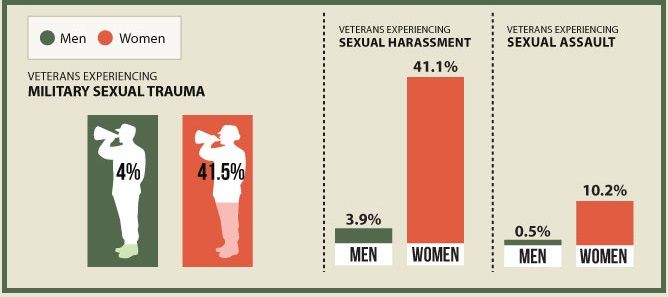Military sexual trauma (MST) refers to sexual assault or threatening sexual harassment experienced during military service. Veterans of all genders and from all types of backgrounds have experienced MST.
Some Veterans experience MST during their service. These kinds of experiences can affect mental and physical health even many years later. Veterans can apply for disability compensation for any current health conditions that were caused by or got worse because of their military service, including conditions related to MST.
If you’re having difficulties related to your experience of MST, we’re here to support you in whatever way will help you best. We can help you learn more about how MST affects people. We can provide treatment that helps you cope with how the experience of MST is impacting your life. Or if you’d prefer, we can provide treatment that involves discussing your experiences in more depth.
If you have a VA health care provider, consider telling that person that you experienced MST. All VA primary care and mental health providers complete training on MST and the treatment needs of people who've experienced it. Your provider can offer treatment referrals and support as needed. Call your nearest VA medical center and ask to speak to the MST coordinator. You can ask to speak with a provider of a specific gender if that would make you feel more comfortable. Scan the QR code for more information.

